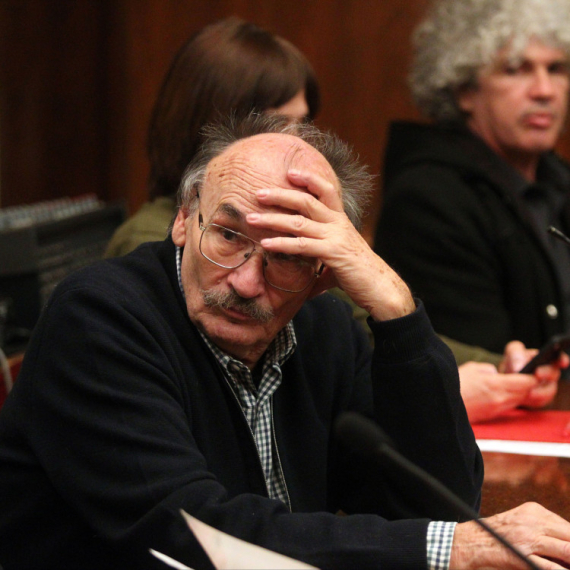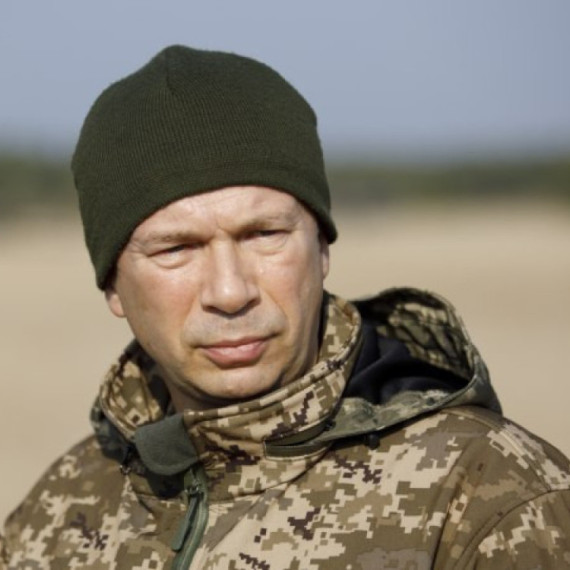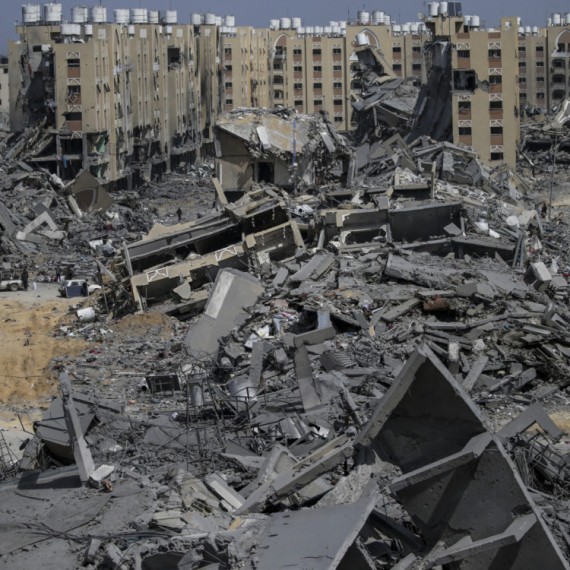U.S. on religious freedoms in Serbia
The respect for religious freedoms in Serbia deteriorated over the past year, according to a U.S. State Department report.
Saturday, 15.09.2007.
18:16

The respect for religious freedoms in Serbia deteriorated over the past year, according to a U.S. State Department report. The Department of State released its annual report on international religious freedom on September 14. U.S. on religious freedoms in Serbia A part of the document pertaining to Serbia says the respect for religious freedoms has deteriorated “because of the problematic law on religion and the Ministry of Religion's arbitrary execution of the law.” The report cites instances of discrimination and acts of societal violence directed against representatives of religious minorities. Leaders of minority religious communities reported acts of vandalism, hate speech, physical attacks, and negative media reports labeling them "sects," "satanists," or "deviants." Police and government officials took positive steps in response to acts of hate speech and vandalism; however, investigations tended to be slow and inconclusive. Even though the Constitution provides for freedom of religion, the 2006 law on religion discriminates among religious groups and denies some groups their legal status, the report says. According to that law, it is required from minority groups, including those that had been previously recognized, to reregister through an invasive and burdensome procedure to attain or retain their status as recognized religious groups. The law on religion recognizes seven "traditional" religious communities, including the Serbian Orthodox Church, Roman Catholic Church, Slovak Evangelical Church, Reformed Christian Church, Evangelical Christian Church, Islamic community, and Jewish community. The report notes that the government has not recognized most other Orthodox churches, despite attempts by the Macedonian and Montenegrin Orthodox Churches to gain recognition. The April 2006 religion law stipulates that the name of a religious organization cannot contain a name or part of a name of an existing registered group. For example, no group including the word "Orthodox" or "Evangelical" in its title could be registered, since those are already found in the names of the traditional churches. Many nongovernmental organizations, the Organization for Security and Cooperation in Europe (OSCE), and the Council of Europe's Venice Commission criticized the religion law. Many of the groups required to reregister had been recognized officially for more than 50 years and present for as long as 150 years. The Orthodox Church received preferential treatment beyond tax exemption, as the government is subsidizing salaries for Serbian Orthodox clergy working in Kosovo and internationally, according to the report. As for the situation in Kosovo, the State Department has concluded that the respect for religious freedom by the Kosovo government improved during the period covered by this report, while the government policy continued to contribute to the generally free practice of religion. According to the report, societal violence decreased marginally, but tensions between communities remained high. Although societal discrimination and violence appeared to be generally ethnically motivated, the close link between ethnicity and religion made it difficult to determine if events were motivated by ethnic or religious animosity. There was a significant increase in the number of persons attending celebrations held at monasteries, with persons coming from throughout Kosovo and Serbia. However, security concerns continued to affect the Serb community and its freedom to worship. Some Kosovo Serbs asserted that they were not able to travel freely to practice their faith. The report continues to assert that the work on the restoration of Serbian Orthodox Church (SPC) objects damaged in the 2004 riots has continued. Full report available for download here.
U.S. on religious freedoms in Serbia
A part of the document pertaining to Serbia says the respect for religious freedoms has deteriorated “because of the problematic law on religion and the Ministry of Religion's arbitrary execution of the law.”The report cites instances of discrimination and acts of societal violence directed against representatives of religious minorities.
Leaders of minority religious communities reported acts of vandalism, hate speech, physical attacks, and negative media reports labeling them "sects," "satanists," or "deviants." Police and government officials took positive steps in response to acts of hate speech and vandalism; however, investigations tended to be slow and inconclusive.
Even though the Constitution provides for freedom of religion, the 2006 law on religion discriminates among religious groups and denies some groups their legal status, the report says.
According to that law, it is required from minority groups, including those that had been previously recognized, to reregister through an invasive and burdensome procedure to attain or retain their status as recognized religious groups.
The law on religion recognizes seven "traditional" religious communities, including the Serbian Orthodox Church, Roman Catholic Church, Slovak Evangelical Church, Reformed Christian Church, Evangelical Christian Church, Islamic community, and Jewish community.
The report notes that the government has not recognized most other Orthodox churches, despite attempts by the Macedonian and Montenegrin Orthodox Churches to gain recognition.
The April 2006 religion law stipulates that the name of a religious organization cannot contain a name or part of a name of an existing registered group. For example, no group including the word "Orthodox" or "Evangelical" in its title could be registered, since those are already found in the names of the traditional churches.
Many nongovernmental organizations, the Organization for Security and Cooperation in Europe (OSCE), and the Council of Europe's Venice Commission criticized the religion law. Many of the groups required to reregister had been recognized officially for more than 50 years and present for as long as 150 years.
The Orthodox Church received preferential treatment beyond tax exemption, as the government is subsidizing salaries for Serbian Orthodox clergy working in Kosovo and internationally, according to the report.
As for the situation in Kosovo, the State Department has concluded that the respect for religious freedom by the Kosovo government improved during the period covered by this report, while the government policy continued to contribute to the generally free practice of religion.
According to the report, societal violence decreased marginally, but tensions between communities remained high. Although societal discrimination and violence appeared to be generally ethnically motivated, the close link between ethnicity and religion made it difficult to determine if events were motivated by ethnic or religious animosity.
There was a significant increase in the number of persons attending celebrations held at monasteries, with persons coming from throughout Kosovo and Serbia. However, security concerns continued to affect the Serb community and its freedom to worship. Some Kosovo Serbs asserted that they were not able to travel freely to practice their faith.
The report continues to assert that the work on the restoration of Serbian Orthodox Church (SPC) objects damaged in the 2004 riots has continued.
Full report available for download here.


























































Komentari 7
Pogledaj komentare